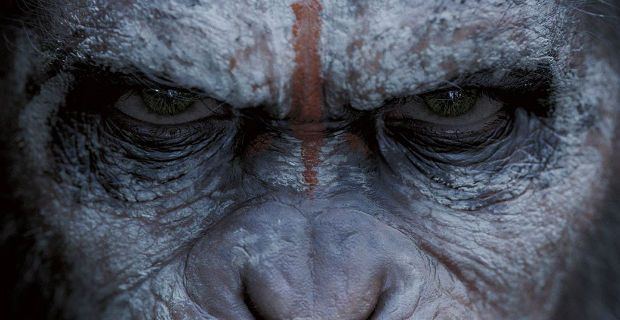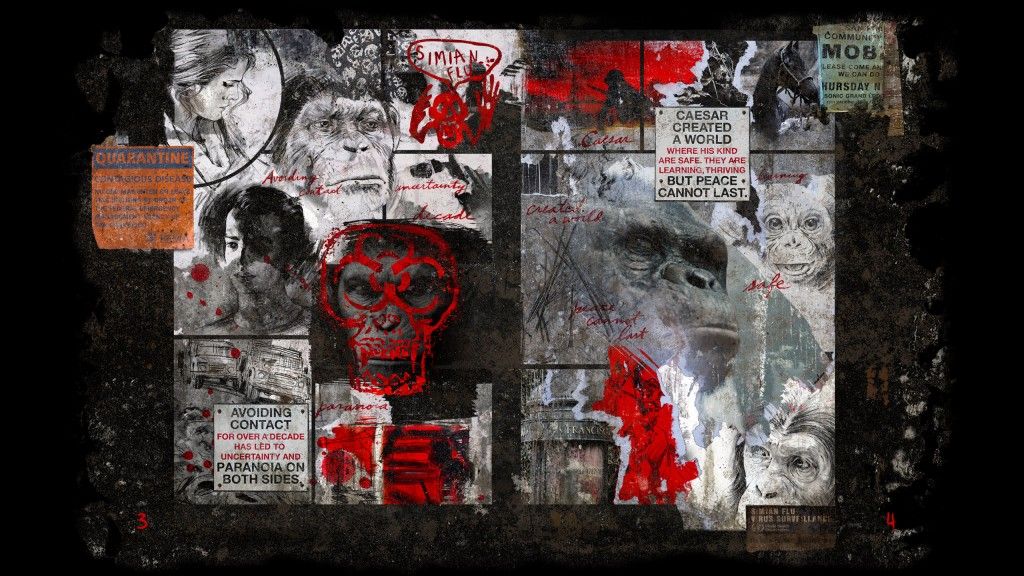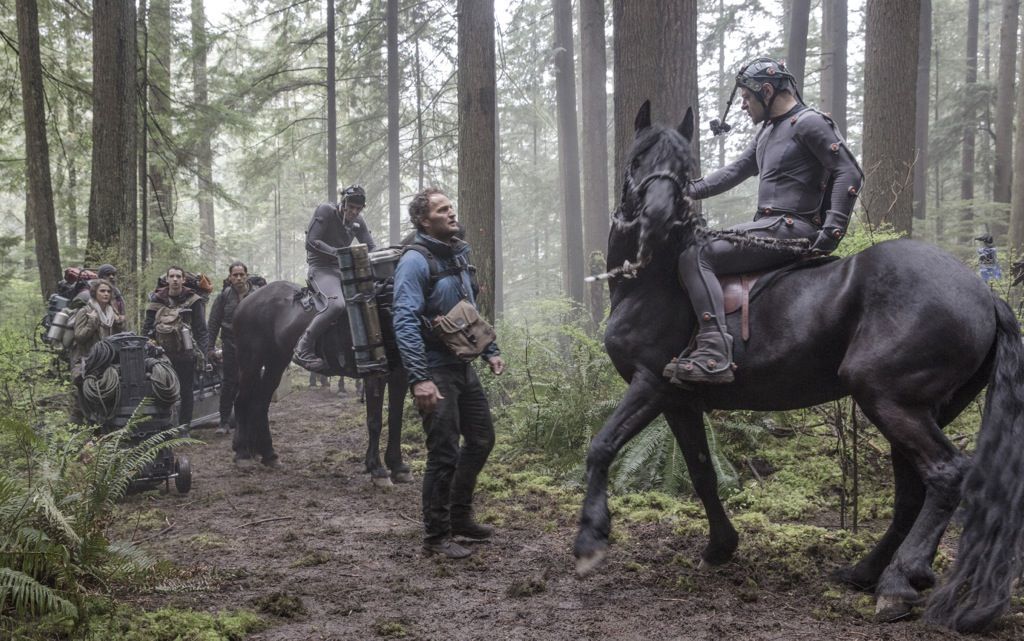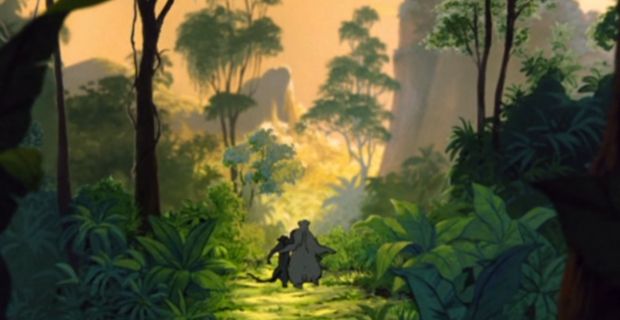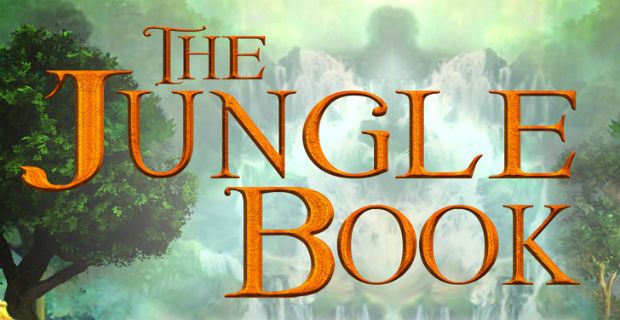Director Tim Burton's 2001 remake of Planet of the Apes was a decade past and some bitter, painful memories still lingered over the much-maligned attempt to revive the franchise. Audiences were skeptical to the say the least in the months leading up to the release of the 2011 prequel Rise of the Planet of the Apes, directed by Rupert Wyatt.
Fortunately, they were quickly won over by Rise, due to its sharp script, smart handling of the universe's origin story, and the brilliant, nearly wordless motion-capture performance of Andy Serkis (Gollum in Lord of the Rings and The Hobbit) as Caesar, leader of the ape uprising.
Expectations are high for the next chapter in the Apes saga, this summer's Dawn of the Planet of the Apes, directed Matt Reeves (Cloverfield) and starring Serkis once again as Caesar. The footage we've seen from the film's early trailer is strong, and the recent influx of images and new plot details makes Dawn one of most anticipated offerings of 2014.
Andy Serkis is at the center of quite a bit of attention lately, not only for his return as Caesar but also due to the recent news that Serkis will direct a live-action version of The Jungle Book for Warner Bros. - one of two adaptations of the Rudyard Kipling classic in development (the other has Jon Favreau attached to direct for Disney). Serkis recently offered details about both projects.
Serkis spoke to Collider while at CinemaCon in Las Vegas to receive the Vanguard Award. Here's what he's excited for fans to see coming into Dawn:
"What I love about this film is that it's completely different to the first film. People who enjoyed the first film may have enjoyed the domesticity of the first film, and the intimacy of seeing this young ape grow into an adult and go through all the trial and tribulations and being ousted from a human family and a father he thought was his. And then having to find his own identity as an ape and then lead them to freedom."
Serkis goes on to reiterate that the sequel beings a decade after Rise, with much of humanity seemingly being wiped out, saying that "for the first twenty minutes of the movie, you think you're watching just apes."
Serkis praises Matt Reeves, saying he's "done an incredible job of making it feel very, very real." As for Caesar, he has apparently united all the disparate types of apes. According to Serkis:
"The ape community, where Caesar has, you know, set up and galvanized all the apes, the chimpanzees and the orangs, and the chimps into one family, one tribe that he's the ruler of. But he's an egalitarian leader, and so you really think you're watching a tribe at the beginning, and I'm really excited about people seeing that, and then suddenly having the rug pulled from out under their feet when the humans turn on them."
When asked if the praise heaped upon the rough cut is accurate, Serkis responded in the affirmative:
"I think it's really powerful, and I think important film about identity, about tribalism, about fighting for what you believe is right and being able to empathize. As it always was with these 'Apes' films, they are always about something else, the metaphor is very clear, and it's - this particular time around it's about these two families fighting for survival, but yet knowing that if you just fight for your own family it's not necessarily the way to peace and not necessarily the way to survival."
Serkis then confirmed that given the first film's success, the idea is to segue into a third film, eventually leading back to the origins of the very first Planet of the Apes. Since Dawn is about survival, the conflict between apes and man will only escalate in the next film.
Andy Serkis is one of the pioneering - and still one of the best - motion-capture performers. When asked about how the technology had improved since the first film, he answered:
"The performance capture technology I would say on this enabled - I would say 90% of the film is shot on location. There are very few on-set pieces in the film, which compared to the last movie, which a lot of them were on sets, very few locations."
According to Serkis, visual effects company WETA has established a "pretty incredible" system for outdoor motion capture, with higher-resolution cameras able to record facial expressions much more accurately this time around. According to Serkis, Dawn of the Planet of the Apes being the largest amount of motion-capture ever done on any movie.
_______________________________________________________________
NEXT PAGE: Serkis talks The Jungle Book
_______________________________________________________________
-
The conversation then turned to The Jungle Book. Serkis cautioned that while it's still early in the process, he did express his enthusiasm in no uncertain terms:
"It's a real thrill, and I'm so excited it about it. It's a wonderful script and a wonderful retelling of Rudyard Kipling's original book of 'The Jungle Book.' Very much in the Warner Bros. tone, it's quite a dark take on the piece."
Serkis described how the development of a motion-capture version of George Orwell's barnyard-set screed on totalitarianism, Animal Farm, has helped evolved his method of having actors in performance-capture portray the four-legged animals of The Jungle Book.
Serkis also said that while he hadn't quite expected the announcement of his involvement with The Jungle Book to come so soon, the segue into directing (having served as Second Unit Director on Peter Jackson's Hobbit trilogy) is something he has been moving toward for some time, and will be “headlong into Jungle Book as of now.”
Serkis also spoke to THR about the Kipling adaptation, talking about first encountering the stories as a child in Baghdad, where he grew up:
"I found it mesmerizing, and it transported me into this incredible world. It's extraordinary that I'm getting a chance to bring it to the screen."
Elaborating on the tone and the faithfulness of the screenplay, Serkis went on to describe how he sees the world of this version of the material:
"What I love about the screen adaptation by Steve and Callie Kloves is it's very truthful to the original book; it doesn’t shy away from its darkness. The jungle is a Garden of Eden and a wonderful place for Mowgli to grow up in, but also is a place of fear and a place of threat."
The original series of short stories which make up Kipling's The Jungle Book is of course far darker than the Disney animated film, which is still the best-known rendering. There's little chance of WB sticking to the original ending of the Mowgli stories (SPOILER! Everybody in his village dies after Mowgli is seen as an outcast and enlists Hathi the Elephant in razing the place to the ground), but a mature retooling of the classic story in the hands of someone acutely creative like Andy Serkis could yield something special and is likely to be a stark contrast to Disney's own retelling.
_________________________________________________
Dawn of the Planet of the Apes opens in theaters on July 11, 2014. The Jungle Book is in development at Warner Bros.

